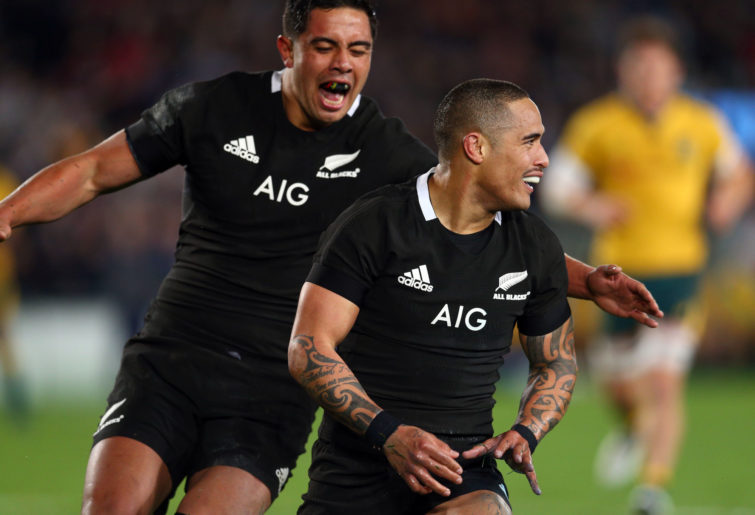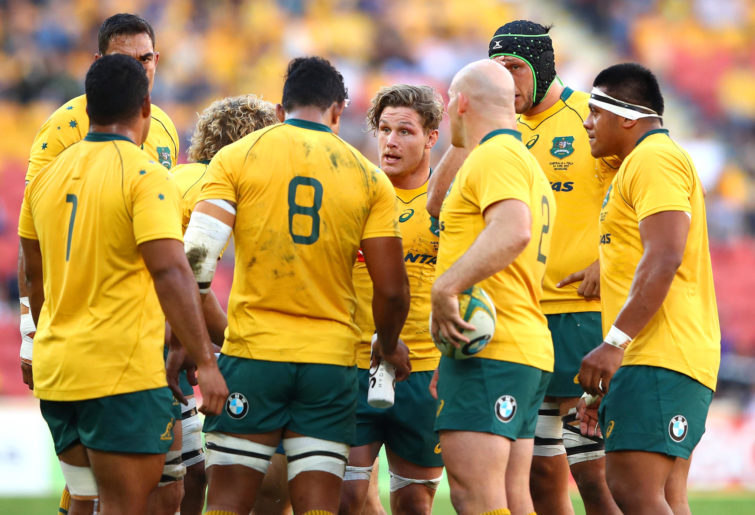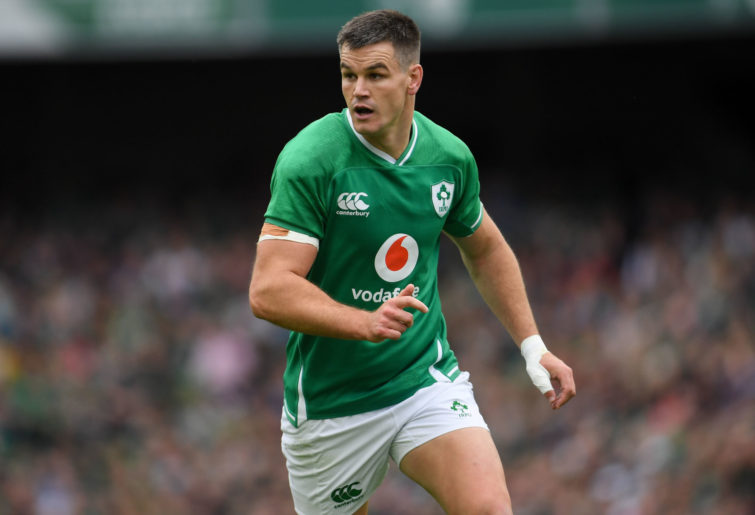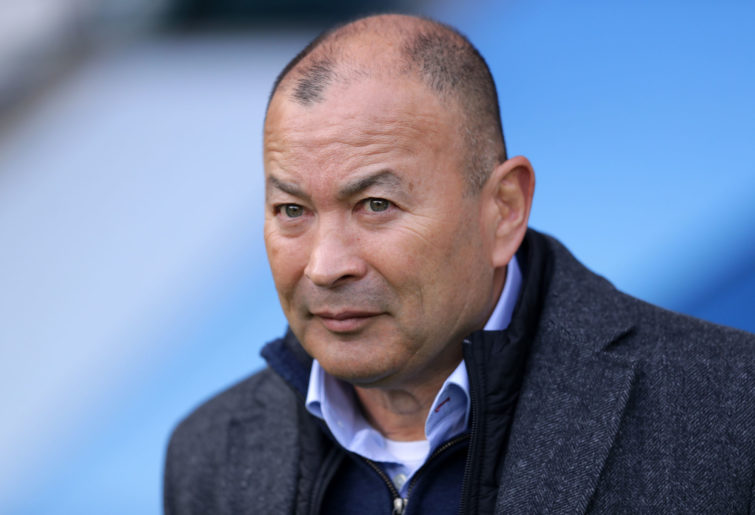All Blacks’ captain Kieran Read didn’t say much at the press conference following his team’s 23-13 win over South Africa.
However, in answering a question about why the All Blacks took time out after the match to formally bow to each quadrant of the stadium crowd, he pinpointed a key factor that differentiates his side, one that will help take them deep into this tournament, if not all the way.
In 1972-73 a good All Blacks side toured the home countries, to be denied a grand slam only by a heroic late try to Ireland’s Tom Grace, snatching a 10-10 draw. Incredible as it seems by today’s standards, the tour spanned matches from the 19th October to the 10th February; 28 games over four long months.
These were also the days when rugby was more staunchly divided across north/south lines, where the written press played a firm role in reinforcing those good versus evil stereotypes.
Rightly or wrongly, these All Blacks were painted as surly, uncharitable tourists – the purchase of black hats for fun by Tane Norton, Alex Wylie and Alan Sutherland, confected into a ‘black mafia’ beat-up. Prop Keith Murdoch was sent home after decking a Cardiff security guard, thus the tone for the tour was set to negative and the side became insular.
Fast forward to the 2007 World Cup where, after strolling through their pool matches, the All Blacks took ‘time out’ at a Mediterranean beach resort, before returning to Cardiff for their quarter-final against France – a match famously lost by 20-18.
There were many reasons for the loss, but one that gained currency over time was how unwise it was for the All Blacks to disengage from the tournament and travel to a location outside of the zone of the tournament vibe.
What the 2019 All Blacks have learned from these two experiences – and others – is the importance of embracing the environment, and turning what can for some players seem tiresome and demanding, into a positive learning experience.
When Read said; “it’s really important for us to connect with the Japanese fans”, he was deadly serious about illustrating the lengths the All Blacks have gone to engage with local communities, to build on what is already an astonishing level of local fan support for the men in black.
The benefits are multiple; every match feels like a home game, and the All Blacks brand is enhanced globally, its commercial value to New Zealand Rugby heightened.
While the All Blacks will win no prizes for the rendition of their national anthem, it was stunning to witness thousands of Japanese fans – many dressed in All Blacks kit – belting out God Defend New Zealand like there was no tomorrow.
But the biggest benefit comes from how the All Blacks are using this local fan connection as a way to draw energy from the tournament itself, and to keep themselves productively busy during their ‘non-rugby’ down time.
An eight-week tour might look like a snack compared to what the 1972-73 team undertook, but because of today’s short tour focus, and heightened security and media demands, it is easy for touring sides to retreat to within the confines of the team hotel.
Here they find frustrations in foreign language TV, food that quickly starts to look and feel the same, and solace in movie downloads. In other words, they potentially fall into a ‘training to training’ existence.
The All Blacks are by no means the only team to be endearing themselves to their Japanese hosts, the Wallabies among others who understand how important this is. But the All Blacks are – by some distance – the most overt and determined to thrive from the Japanese experience.
And through conscious planning – leveraging off the experience of ex-pat Kiwi coaches and players, and recent Super Rugby and Test match exposure in Japan – there are signs that they already have the jump on their opposition.
As it happened, things started brightly for them on the pitch, in the clash of the Pool B heavyweights, in Yokohama. It might have taken twenty minutes to adjust to the speed and intensity of the Springbok defence, but when Richie Mo’unga unlocked the green rush with a cross-kick, Sevu Reece and Ardie Savea were electric on the right flank, Beauden Barrett burst through the middle, and Anton Leinert-Brown stepped his way through the left, sweeping play delivered brilliant running tries to George Bridge and Scott Barrett.
In a flash it was 17-3, with the Boks looking like they’d added lead to their boots. Handre Pollard and Willie le Roux were sitting back, kicking from the pocket, and when they weren’t, Faf de Klerk was kicking it away from the base.
In the end, South Africa lost prop Trevor Nyakane, and early bragging rights, but certainly not the World Cup. Winger Cheslin Kolbe – a mighty midget in a game for big men – thrilled every single one of the 70,000 people at the stadium, and coach Rassie Erasmus now has three weeks in which to implement tweaks – not major structural changes – to his game plan.

Aaron Smith (Photo by Renee McKay/Getty Images)
The atmosphere in Yokohama for this match was brilliant, as it was on Friday night across town at Tokyo Stadium, where the beautiful opening ceremony hit all the right notes, even if the host side Japan didn’t hit all of theirs, scratching their way to a 30-10 win against a gallant Russia.
A nervous start might have been expected, but nobody was ready for a muffed catch to provide a Russian winger the first try in the tournament. Remember this name for trivia nights in years to come: Kirill Golosnitskiy.
Things were righted soon enough, the stadium roar deafening as Kotaro Matsushima streaked over on the right edge – the first of three tries for him on the night.
At the half hour, Russia looked absolutely spent but, somehow, they kept making their tackles; impressive flanker Tagir Gadzhiev should today be swatting French club contract managers away like flies.
Overawed by the occasion, Japan will get better; but only if they get more clarity and accuracy from their playmakers.
Despite months of preparation it was inconceivable that the Wallabies managed to walk straight into a Fijian ambush in Sapporo. Fiji bought energy, hurrying Nic White into a poor midfield kick, and when the Wallabies defensive line was slow to realign, the big tankers rumbled wide, straight through Reece Hodge, sending flanker Peceli Yato to the line for a storming try.
Yato and Hodge were to reacquaint themselves a few minutes later – with dire consequences for Yato, taken out of the match with concussion, and potentially dire consequences for Hodge, whose courageous but clumsy effort to tackle, may have saved his side a try, but cost Hodge his World Cup.
The Wallabies urgently needed a circuit breaker and found it in their scrum, the excellent Michael Hooper burrowing over after the Fijian pack had been obliterated.
Here was all of Michael Cheika’s tactical naivety and stubbornness on display, seemingly uncaring or oblivious to the strengths and weaknesses of his opponent, Fiji. Being hell-bent on playing a quick recycle, side to side game, at the expense of ignoring his potent set-piece weapon for this particular match, was baffling to say the least.

Michael Hooper of the Wallabies. (Photo by Cameron Spencer/Getty Images)
Most bizarre was the sight of David Pocock – a level head if ever there was one – playing on quickly at a lineout a metre from his own line, transferring pressure to a teammate, when the referee had already provided him with the option to set a scrum and win a relieving penalty.
The madness had to end, and after 50 minutes it finally did, Hooper and replacement halfback Will Genia, employing the strategic kicking and forward-driving game the situation demanded.
Sometimes efficient, simple rugby is all you need.
Genia was particularly impressive – admittedly behind a pack that had, by then, got well on top. And while White was by no means poor, a tell-tale sign that he isn’t firing is when he starts to look for the officials to help him out. It was indeed interesting how both he and Faf de Klerk, two of the best kick exponents in the English Premiership, were both off their best on the same day.
Fiji were rightly upset that more wasn’t made of the Hodge tackle but, increasingly, they became the authors of their own misfortune, basic handling errors studding their play. And, as highlighted in last week’s preview, any side who comes to this World Cup with a deficient set-piece is merely asking for an early exit.
Back at Tokyo Stadium both sides won half a match each, the French happening to win theirs by a touch more, sneaking a 23-21 result over Argentina. It was a bitter pill to swallow for the Pumas, who must have felt that their second half comeback was strong enough.
But credit to France who created and finished with style when things were flowing their way in the first half, and who had the cool head of Cami Lopez to slot a crucial drop goal in the second.
Ireland fans outnumbered Scots by around two to one at the start of Sunday’s crucial Pool A match. By the end of the match, that ratio had trebled; tartan clad Scottish fans quietly slipping out early to beat the crush on the trains and ponder their side’s meek 27-3 losing performance.

Jonathan Sexton of Ireland. (Photo By Ramsey Cardy/Sportsfile via Getty Images)
Ireland bought nothing more or less than what was expected. Conor Murray delivered precision to his kicking that other halfbacks over the weekend lacked, and the Irish defensive line had Andy Farrell’s stamp all over it – impressive in the speed with which it readjusted and re-set, and its consistent execution at the tackle.
Ireland also showed a sharper nose for getting the ball over the try-line from close range than any of the other leading contenders so far.
Most of the talk afterwards focused on Scotland and the juicy prospect of either Japan or Samoa wresting their quarter-final spot from them. It’s a possibility of course and certainly, if Japan qualify, it will further enhance what is already a brilliant World Cup.
But in their haste to write off Scotland, it seemed that many had already forgiven or forgotten Japan’s own deficiencies, from their opening match against Russia.
Yesterday it was put to me that England’s 35-3 win over Tonga made them a 53-point worse team than New Zealand (who beat Tonga 92-7 in their final World Cup warm-up match).
It’s not as if Tonga played out of their skin; like Fiji they were guilty of aimlessly kicking away ball when there were opportunities to beat a man one on one, or to put a hard shoulder into their opponent, and there were far too many unforced handling errors for them to remain truly competitive.
England for their part offered little by way of constructive attack, content to feed off the inevitable errors rather than reveal their hand. Not a performance that will have other sides trembling, however the specifics of their draw mean that England is just biding time for now – their World Cup starts on October 5th against Argentina.

Eddie Jones, head coach of England. (Photo by Richard Heathcote/Getty Images)
Of the main contenders, Wales was last out of the blocks, cruising to a 29-0 half-time lead against a disjointed Georgia. The Georgian scrum showed enough in the second half to concern Fiji, while Wales too, will be better for the hit-out, ahead of their crucial match next Sunday, against the Wallabies. Let’s leave that one in the ‘too hard’ basket for now.
At last, this World Cup is off and running. Its presence in Tokyo is strong, and wherever you turn there is seemingly someone clad in rugby garb, local and gaijin, ready and willing to shoot the rugby breeze.
They will have noticed how England too gathered in front of the crowd at the completion of their match to acknowledge the wonderful support shown by local fans – a gesture that was as genuinely made as it was warmly received.
But there was also something missing – the formality of the bow, a lack of conviction when compared to what the All Blacks showed a day earlier.
That’s a gap that will need to be closed by England and everyone else – on and off the pitch – if the All Blacks are going to be prevented from claiming their third successive World Cup.
































































































